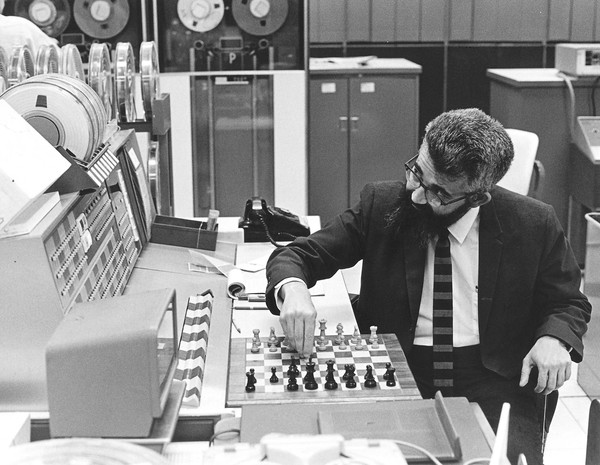Pioneering computer scientist Roger Schank answered “Artificial Intelligence” when Edge asked him the question, “What Scientific Idea Is Ready for Retirement?” That’s a good reply since we can’t “explain” to computers how the human brain works because we don’t yet know ourselves how it works. An excerpt:
“It was always a terrible name, but it was also a bad idea. Bad ideas come and go but this particular idea, that we would build machines that are just like people, has captivated popular culture for a long time. Nearly every year, a new movie with a new kind of robot that is just like a person appears in the movies or in fiction. But that robot will never appear in reality. It is not that Artificial Intelligence has failed, no one actually ever tried. (There I have said it.)
David Deutsch, a physicist at Oxford said: ‘No brain on Earth is yet close to knowing what brains do. The enterprise of achieving it artificially — the field of ‘artificial intelligence’ has made no progress whatever during the entire six decades of its existence.’ He adds that he thinks machines that think like people will happen some day.
Let me put that remark a different light. Will we eventually have machines that feel emotions like people? When that question is asked of someone in AI, they might respond about how we could get a computer to laugh or to cry or to be angry. But actually feeling?
Or let’s talk about learning. A computer can learn can’t it? That is Artificial Intelligence right there. No machine would be smart if it couldn’t learn, but does the fact that Machine Learning has enabled the creation of a computer that can play Jeopardy or provide data about purchasing habits of consumers mean that AI is on its way?
The fact is that the name AI made outsiders to AI imagine goals for AI that AI never had. The founders of AI (with the exception of Marvin Minsky) were obsessed with chess playing, and problem solving (the Tower of Hanoi problem was a big one.) A machine that plays chess well does just that, it isn’t thinking nor is it smart. It certainly isn’t acting like a human. The chess playing computer won’t play worse one day because it drank too much the night before or had a fight with its wife.
Why does this matter? Because a field that started out with a goal different from what its goal was perceived to be is headed for trouble. The founders of AI, and those who work on AI still (me included), want to make computers do things they cannot now do in the hope that something will be learned from this effort or that something will have been created that is of use. A computer that can hold an intelligent conversation with you would be potentially useful. I am working on a program now that will hold an intelligent conversation about medical issues with a user. Is my program intelligent? No. The program has no self knowledge. It doesn’t know what it is saying and it doesn’t know what it knows. The fact that we have stuck ourselves with this silly idea of intelligent machines or AI causes people to misperceive the real issues.”
Tags: Roger Schank

